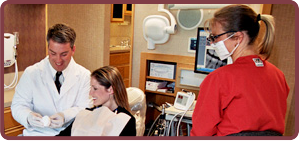
Excessive sugar consumption is widely known to cause a plethora of health concerns such as tooth decay, weight gain, heart disease, and type 2 diabetes, but it can be incredibly hard to cut out the sweet stuff completely after you’ve become used to it. Many companies have produced alternative sweeteners such as aspartame, stevia, and saccharin to help people enjoy a sweet treat without all the calories. Here’s what you should know about how artificial sweeteners can affect your oral health.
What Are Artificial Sweeteners?
Non-nutritive sweeteners, or artificial sweeteners can provide people with a sweet taste without all the empty carbs. In fact, studies have found that these sweeteners are significantly sweeter than common sugar. Stevia and saccharin are roughly three hundred times sweeter than refined sugar and sucralose is a whopping six hundred times sweeter.
What Can Artificial Sweeteners Do to My Teeth?
Since artificial sweeteners do not contain the wealth of calories that comes with real sugar, they cannot serve as food for harmful oral bacteria. This means that consuming artificial sweeteners will not lead to tooth decay or other oral infections. In fact, some studies have suggested that these sweeteners can actually decrease the risk of tooth decay by making the oral cavity less acidic.
However, even though diet sodas might not have any sugar, they are still high in acids and devoid of any real nutritional value. This means that, while enjoying a diet soda won’t feed any harmful oral bacteria, it will expose your teeth to acids that will weaken their enamel layer. This means that a diet soda habit can still contribute to tooth decay without giving you any significant nutrition and while being fairly expensive in the long run (buying a soda for every lunch adds up over the years).
The best way to prevent tooth decay and other oral infections is to practice excellent oral hygiene while avoiding sugars and other substances that are harmful to your smile. While artificial sweeteners may help you get away from sugar, it’s important to make sure your body gets enough of all the nutrients it needs to stay healthy and strong.
About the Author
Dr. H. Douglas Clark III earned his Doctor of Dental Surgery from Marquette University School of Dentistry and has practiced at Hill Avenue Dental in Superior, WI since graduating in 2004. He is proud to be a member of the American Dental Association, the Academy of General Dentistry, and the American Academy of Cosmetic Dentistry. Areas of expertise include general, restorative, and cosmetic dentistry. For more tips for reducing your sugar consumption, contact the office online or dial (715) 392-5161.









